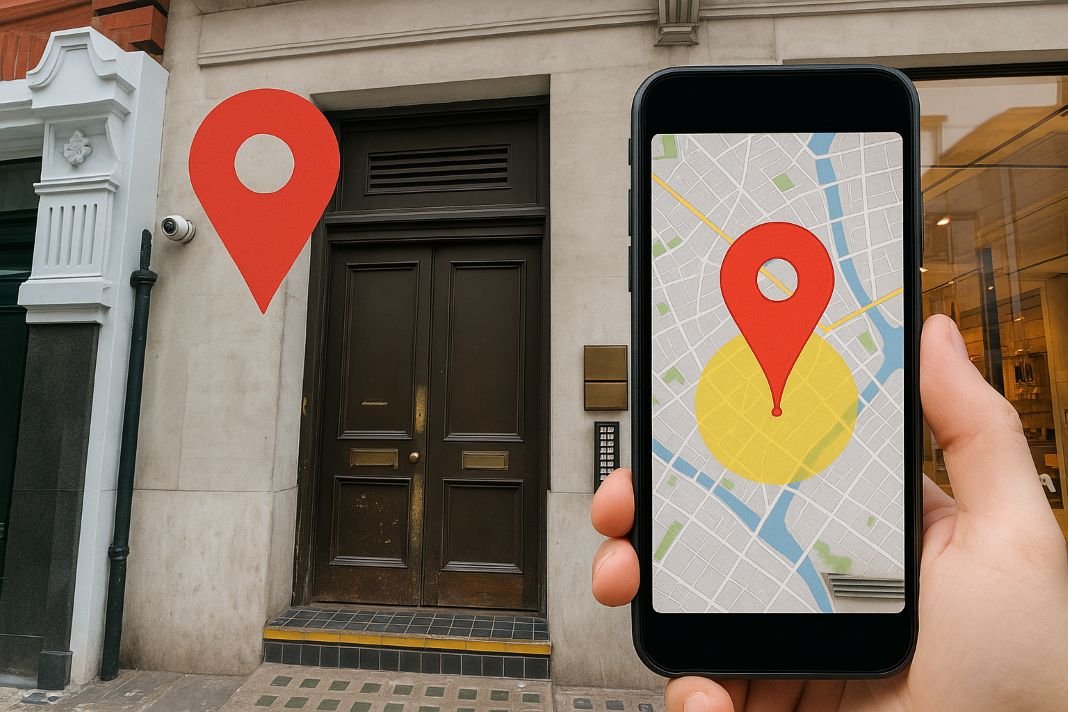How can UK businesses increase their local SEO effectively in 2025?
UK businesses can improve local SEO by maintaining accurate business information, using precise local keywords, encouraging customer reviews, and building location focused content. Prioritising visibility in search engine map packs and ensuring consistency across all online directories helps people find your business nearby, both on search engines and in person. This increases trust, drives qualified traffic, and supports revenue through organic local search results.
Here's What We Have Covered In This Article
Google Business Profile: Keep everything up to date
Claim your Google Business Profile and complete every section thoroughly. Add your registered business name, street address, postcode, business hours, and contact number. Include appropriate service categories, upload real photos, and regularly post updates about services, seasonal offers, or availability.
Helpful steps
Ensure the business name and postcode exactly match the website
Define service coverage areas, especially for mobile service businesses
Make the phone number clickable for users on smartphones
Use the Questions and Answers section to address customer concerns in advance
Why is consistency in business details important for local SEO?
Having consistent name, address, and phone number across your website, Google profile, social media, and third party directories is a known ranking factor for local SEO. Mismatches across platforms reduce confidence from search engines and users.
Using citation management tools like BrightLocal or Whitespark helps to identify and correct inconsistencies in local listings. This improves crawl efficiency and indexation.
Pro Tip : Use real customer questions in your Q&A section. These help you appear for long tail and voice searches naturally.
Want to Rank Higher Locally?
Our local SEO experts help your business show up where it matters most. Let’s optimise your visibility in your area today.
What should a local SEO checklist include?
A complete checklist should include:
Directory submissions on UK platforms such as Yell, Scoot, and Thomson Local
Unique landing pages for each service location
Proper use of local business schema markup
On page optimisations using regional long tail keywords
Map pack visibility tracking
Internal links should connect location pages and services naturally. For example, “Our page on boiler servicing in Leeds has detailed options for each neighbourhood.”
Share updates through Google Posts and use the Q and A tool
Google Posts act as temporary announcements visible in search. Share brief messages about limited offers, new hours, or events. Add calls to action like “Book your appointment online”.
The Q and A section helps address popular customer queries. Examples include “Do you accept walk ins at your Birmingham branch?” and “Is parking available at your clinic in Bristol?” Adding these in your own words also helps optimise for natural search questions.
How should UK businesses use voice search keywords?
Users increasingly use voice search for local needs. These queries tend to be longer and sound more conversational. Phrases like “Where can I get an MOT near Stockport this afternoon?” align with how people ask Google using mobile devices.
Include these patterns naturally in your headings and body copy. Avoid keyword stuffing. Instead, write as if answering a question directly.
Write dedicated pages for each service location
Create a separate page for each branch, borough, or coverage area. Include nearby landmarks, staff details, unique selling points, and customer testimonials.
Each page should use keywords specific to that location. For example, “Emergency plumbing in Tooting” or “Wedding florists near Peckham Rye”. Internal links should point from general service pages to local variants.
Add structured data to improve visibility
Schema markup uses code to provide search engines with structured information. LocalBusiness schema can define your business name, telephone number, geographic location, and customer ratings.
Use Google’s Structured Data Markup Helper to create this easily. Paste it into the appropriate location on your website. Ensure each branch has its own schema entry, matching the content of its page.
Earn local backlinks and brand mentions
Google treats quality backlinks as a sign of relevance and authority. Build local backlinks from trusted partners, press features, charities, and schools.
Offer advice columns, sponsor small community events, or join business groups. When mentioned, ask politely for a link to your service area page or home page.
Pro Tip:Update your local landing pages quarterly. Even a small tweak to headings or seasonal content helps keep them relevant in Google’s index.
Track visibility using map tools
Map pack rankings often change based on where the user searches from. Tools like Local Falcon show where your business appears for local intent keywords across a city grid.
If coverage is low in certain areas, it could be worth building a location landing page, earning local reviews, or improving your listing relevance.
Ask for reviews and reply with care
Online reviews impact both click through rate and ranking in local results. Encourage happy customers to leave feedback through email or SMS with a direct link to your profile.
Respond to all reviews professionally. Show appreciation for positive ones. For less favourable feedback, explain the action taken to resolve the issue. This demonstrates reliability and responsiveness.
Improve your mobile experience
A large percentage of local searches are made on mobile phones. Your site should load quickly, display well on smaller screens, and feature clear contact buttons. Ensure there is an embedded map and opening hours are visible without scrolling.
Use Google’s Mobile Friendly Test tool to identify problems that could reduce usability or visibility.
Your Customers Are Searching, Are You Showing Up?
From reviews to rankings, First Place SEO helps UK businesses grow by being easier to find online.
Monitor what your competitors are doing
Use SEO software to analyse how competitors perform in your area. Look at their keyword rankings, review volume, backlink profile, and Google updates.
If a competitor in Edinburgh is ranking for “emergency locksmith near me,” study their page to see what structure, content, or schema they use that could inform your own improvement.
Connect your business to local stories
Mention your community activities in blogs or updates. Whether you donated to a local school or attended a local event, write about it. Add location based phrases and link internally to relevant service pages.
Example: “Our team supported the Reading winter fair and shared free boiler safety advice with local residents.”
Use data to measure what is working
Google Search Console and Analytics reveal how users find your business, what pages they visit, and where they leave. Segment traffic by location or device type to improve specific landing pages.
Track search terms that bring in users to each location page. Adjust metadata and headings based on real queries.
Keep things fresh
Local SEO requires regular effort. Keep information current, add new reviews often, and monitor how your business is seen online. These consistent actions improve how Google and customers view your business.





